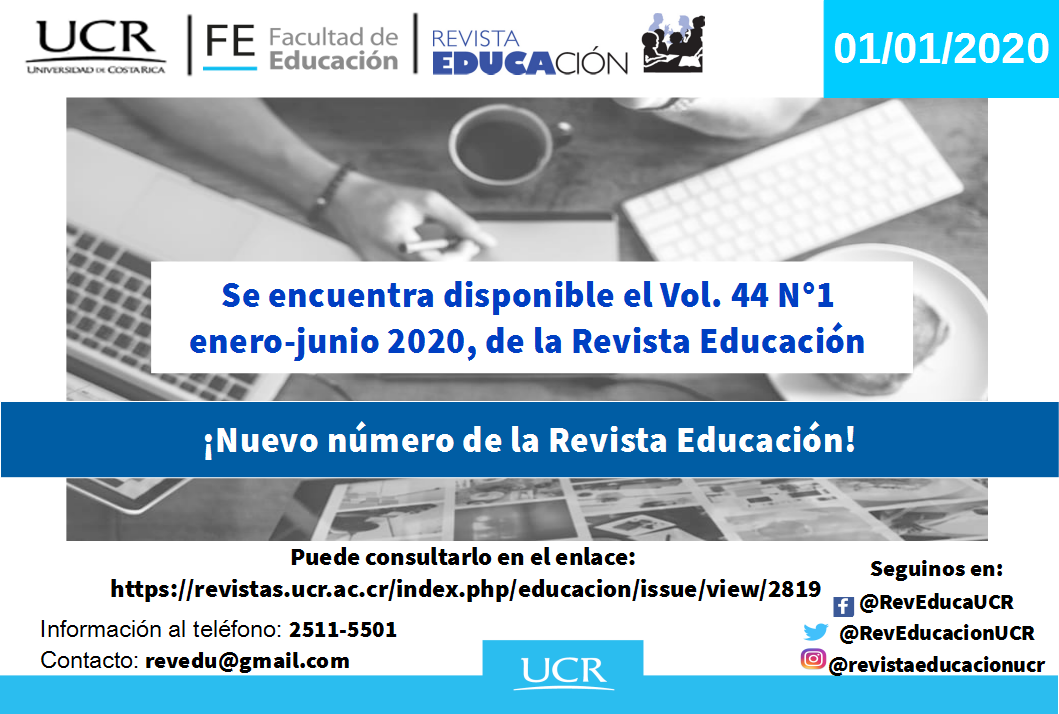Abstract
This study sets forth an academic approach that applies the concept of entropy (the second law of thermodynamics) to the foundations of education. The concept of entropy is based on the notion of uncertainty in a changing world that is subject to chance and which is not represented in a static educational system which possesses a degree of theoretical mobility but has little didactic and evaluative mobility. As a result, entropy becomes a favorable setting for the type of transformation that education must undergo to respond to the needs of a non-static system. This article analyzes the context of the Colombian educational system, a low-entropy system that is organized, systematic and hardly adaptable to the changing actuality of our contemporary world.
References
Arriaga, J. L. (2017). Sistema, autopoiesis y entropía en los desafíos educativos contemporáneos. Educación yHumanismo, 19 (33), 271-288. doi: http://dx.doi.org/10.17081/eduhum.19.33.2644
Ausubel, D. (1983). Psicología educativa: Un punto de vista cognitivo. México: Trillas.
Bauman, S. (2000). Modernidad líquida. Buenos Aires: Fondo de Cultura Económica.
Berstein, B. (1988). Poder, educación y conciencia. Santiago: CIDE.
Bordieu, P. (1984). Sociología y cultura. Argentina: Grijalbo.
Cazau, P. (1995). La teoría del caos. Recuperado de http://www.uca.edu.sv/facultad/chn/c1170/Teoria%20del%20caos.pdf
De Sousa, S. B. (2012). Epistemologías del sur. México: Siglo XXI Editores.
England, J. (2015). Entropía social y teoría de caos social. Recuperado de https://www.englandlab.com/publications.html
Figueira, F. (2008). La desigualdad como clave social del desarrollo maniatado. Buenos Aires: Clacso.
García, J. (2019). Burnout (síndrome del quemado). Recuperado de https://psicologiaymente.com/organizaciones/burnout-sindrome-del-quemado
Gardner, H. (1987). Las estructuras de la mente. México: Fondo de Cultura Económica.
Kuhn, T. (1962). Teoría de las revoluciones científicas. México: Fondo de Cultura Económica.
Linari, D. (2005). Entropía Educativa. Buenos Aires: Dunken.
Max, N. M. (1993). Desarrollo a escala humana. Icaria: Barcelona.
Mineducación. (2019). Ministerio de Educación Nacional. Recuperado de https://www.mineducacion.gov.co/portal/Preescolar-basica-y-media/
Morín, E. (1999). Los siete saberes necesarios para la educación del futuro. Paris: UNESCO.
Quintar, E. (1998). La enseñanza como puente a la vida. México: IPECAL.
Ranciere, J. (2003). El maestro ignorante. Barcelona: Laertes.
Revista Semana. (2016). La educación de Uribe Vrs la de Santos. Recuperado de https://bit.ly/35K4Acb
Sen, A. (1999). Desarrollo y libertad. Barcelona: Planeta.
Vicuña, S. (2018). La entropía pedagógica. Lima: Yopublico.







